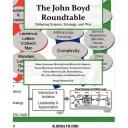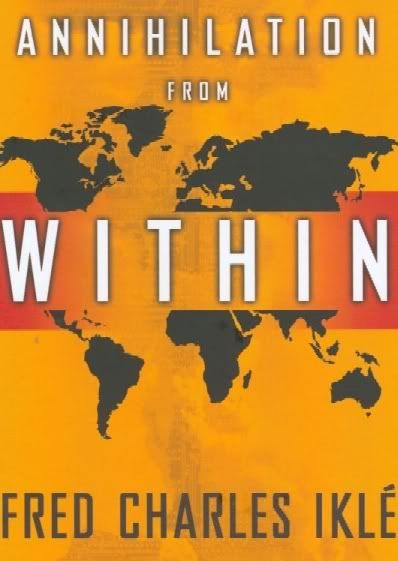Kelly Vlahos Spoons John Nagl Over COIN
Monday, September 3rd, 2012There is quite a buzz going in mil and defense blogger circles over the recent op-ed savaging in The American Conservative by Kelley Vlahos regarding Dr. John Nagl and COIN. Unfortunately for Vlahos, little of it that I have seen online or privately is favorable – including from some people who I know are less than well-disposed toward COIN or the COINdinistas.
Speaking as someone who was one of the earlier voices to remark that the political moment of pop-centric COIN had passed, I found Vlahos’ post to largely be ill-tempered, context-distorting, schadenfreude.
But hey, judge for yourself. My comments will be in normal text:
Learning to Eat Soup with a Spoon
….Then Tom Ricks, Washington Post correspondent-court scribe, conducted a full-blown high school popularity contest, literally ranking the “brains behind counterinsurgency’s rise from forgotten doctrine to the centerpiece of the world’s most powerful military.” In this cringe-worthy “top ten” published in Foreign Policy in December 2009, Ricks places “King David” Petraeus at Number 1, and then Nagl, whose Oxford dissertation-turned-Barnes-and-Noble-bestseller Learning to Eat Soup with a Knife made him a counterinsurgency “scholar,” among other bright lights of the time. Nagl, Ricks predicted, would be “in a top Pentagon slot within a year or two.”
That was just three years ago. Today, there is no better symbol for the dramatic failure of COIN, the fading of the COINdinistas and the loss that is U.S war policy in Afghanistan than this week’s news that Nagl is leaving Washington to be the headmaster of The Haverford School, a rich preparatory school (grades k-12) for boys on Philadelphia’s Main Line.
Hmmmm. I guess General Petraeus as CIA Director and General Mattis as Combatant Commander of CENTCOM are therefore examples of a rare form of career failure.
And really, only a subpar military officer would involve himself in educating young people. Shame on you, John Nagl, for joining such a shady group of misfits.
….That’s right — Nagl, once called the Johnny Appleseed of COIN, who reveled in his role as face man, tutoring reporters with practiced bookish charm on the “the new way of war,” and burnishing his personal story to convince everyone that he was a counter-insurgent before his time — a modern T.E. Lawrence — is packing up for good. Turns out that despite all the high hopes, the COINdinistas hit the brass ceiling with a smack, especially once it became clear that the magic they sold was a bag of beans….
Again, most of the COINdinistas, so-called, have not hit some kind of brass ceiling nor are they secretly running the Army or the administration. Most are in perfectly respectable but unremarkable ranks, institutional positions or jobs in the private sector. HR McMaster is now a brigadier major general, Con Crane is a director at the US Army Military History Institute, Kalev Sepp is a lecturer at the Naval Postgraduate School, Montgomery McFate holds the Minerva Chair at NWC, General Jack Keane sits on several corporate boards, Fred Kagan is still at AEI, Andrew Exum is at CNAS, David Kilcullen is the CEO at Caerus Associates and so on.
By Washington standards, this is a relatively modest level of policy influence or promotion (Petraeus and Mattis excepted). If you want to look at rapid advancement through political connections, consider Al Haig rising like a rocket from LTC to full general and NATO Supreme Commander due to his proximity to Richard Nixon and Henry Kissinger. Or the unusually gilded career path of Colin Powell.
That said, there are many grounds, theoretical and practical, to find fault with pop-centric COIN theory and FM 3-24, from an anti-empirical legacy assumption of a Maoist model of insurgency, to a fundamental confusion of tactics and operational art with strategy to the hardening of COIN from a fairly flexible emergent doctrine in Iraq into a rigid, micromanaging, ROE dogma in Afghanistan. COIN is ripe for revision, not excision and substantive, informed, critiques of the wars of the past decade are sorely needed by scholars, military officers and defense intellectuals. Irregular conflict is never going away any more than war will go away.
Unfortunately, Vlahos was too busy with gossipy smears on Nagl’s character to make any substantive points of that nature which would have made her column something more than ad hominem rubbish.


















